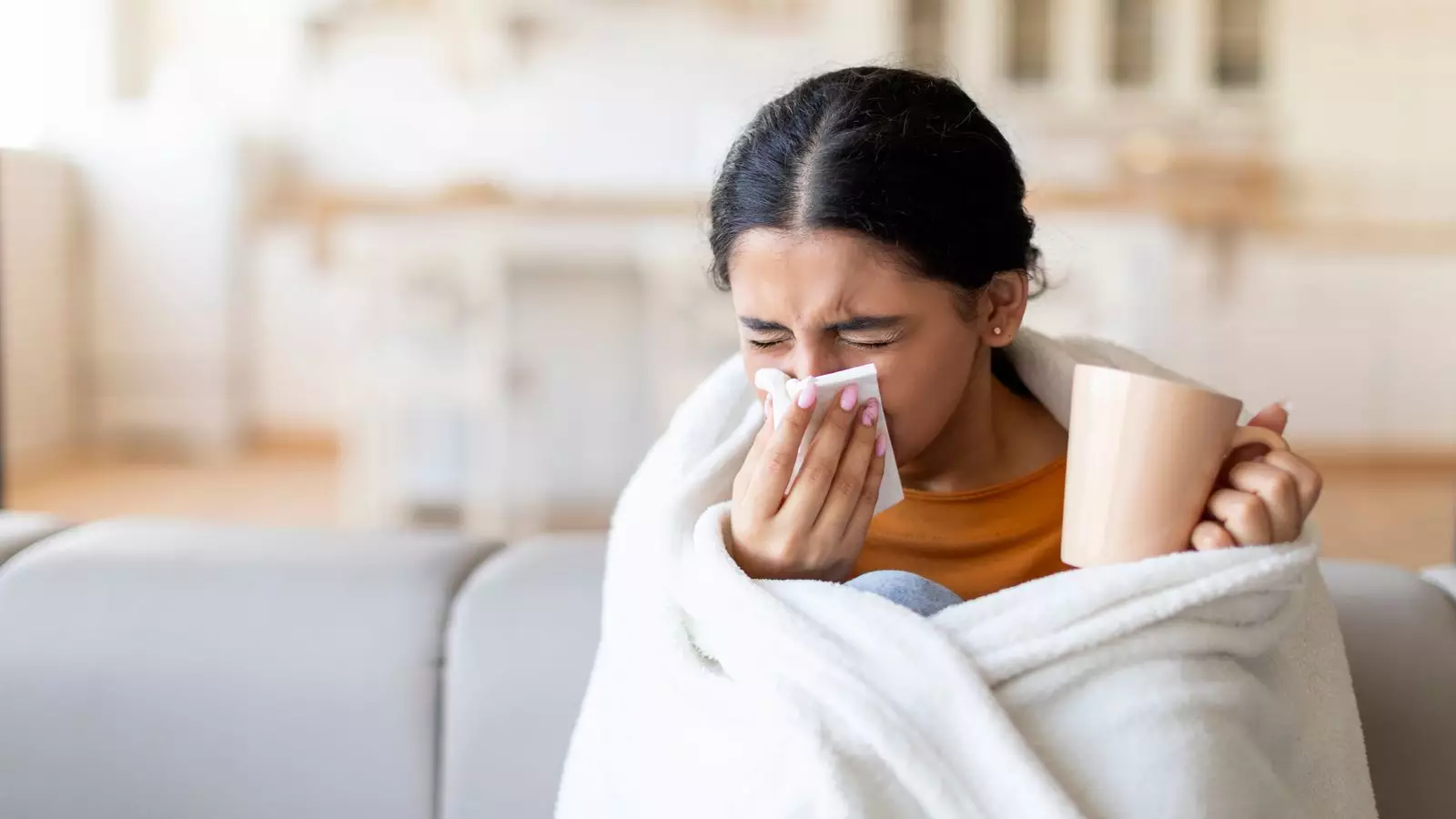As winter approaches, so does the annual increase in respiratory illnesses, and this year is particularly alarming. Recent data from NHS England reveals a staggering 70% surge in flu hospitalizations over the past week, with the average number of patients climbing to 1,861, a stark increase from 1,099 the week before and 402 at the same time last year. This dramatic spike is igniting fears of a “quad-demic,” where multiple viral infections coincide to challenge the healthcare system significantly.
The UK Health Security Agency has identified that flu cases are predominantly concentrated among children aged 5 to 14. However, the situation is poised to worsen as adult cases are anticipated to rise with the holiday season approaching, leading to increased social gatherings and indoor activity. The nature of winter commonly exacerbates the spread of these illnesses, presenting an urgent public health concern.
In addition to the flu, the troubling emergence of norovirus and respiratory syncytial virus (RSV) has been noted. The prevalence of norovirus, known for causing acute gastroenteritis, has resulted in an average of 837 hospital beds occupied by individuals exhibiting symptoms last week. This figure marks a 10% increase from the prior week and a 64% increase year-on-year. Simultaneously, an average of 152 children hospitalized with RSV reflects an uptick from the previous week, signaling a growing strain on healthcare resources.
As COVID-19 cases continue to present challenges, they have seen a slight decline, with 1,343 beds occupied, down from 1,390. Despite this decrease, the coexistence of multiple viral infections this season is starkly concerning. The heightened risk of complications from co-infections emphasizes the importance of preventing illness wherever possible.
The term “quad-demic” coined by health professionals represents the convergence of flu, norovirus, RSV, and COVID-19. GP David Lloyd has underscored the increased risk associated with infections of this nature, particularly during a season where families and friends tend to congregate indoors. This social intimacy, while warm and joyous, also creates an environment ripe for the spread of illnesses, raising alarms about the potential ramifications on public health.
The implications of increased hospital admissions during this season could lead to significant stress on an already strained NHS. Professor Sir Stephen Powis of NHS England voiced the need for urgency regarding vaccinations, emphasizing that a proactive approach in receiving vaccines against these viruses can help mitigate the spread and reduce serious health complications.
The urgency to get vaccinated is palpable as health officials urge eligible populations—such as those over 65, pregnant individuals, and those with specific health conditions—to receive their flu vaccinations. The NHS is facilitating access to vaccinations at various locations, including pharmacies, Christmas markets, and sports venues, ensuring that the public can obtain necessary protection before the virus peaks.
According to health authorities, RSV vaccinations are also significant for pregnant women, as they can help safeguard newborns from severe infections, as well as for older adults aged 75 to 79. The messaging from health leaders is clear; prioritizing vaccinations could stave off a crippling wave of illnesses during the festive season.
Amid rising patient numbers, the NHS is grappling with record levels of activity in its Accident & Emergency (A&E) departments. November witnessed an unprecedented 2.31 million A&E visits, an alarming trend reflecting mounting pressures. While there has been a slight improvement in overall waiting lists—down from 7.57 million to 7.54 million in consecutive months—the reality remains strained with a significant portion of patients waiting beyond the desired 18-week period for treatment.
Delays in ambulance handover times have also been reported, which can lead to increased suffering for patients requiring immediate care. Timely medical attention is critical, especially when concurrent viral infections challenge both patients and professionals alike.
The current surge in flu infections, alongside rising cases of norovirus and RSV, paints a troubling picture for the upcoming winter months. The potential for a quad-demic puts immense pressure on the NHS, with fabric-thin margins for error. Proactive measures, including widespread vaccination, are essential in curbing the impact of these seasonal illnesses. Public awareness and engagement can make a difference in protecting personal health and supporting the healthcare system during these critical times.

